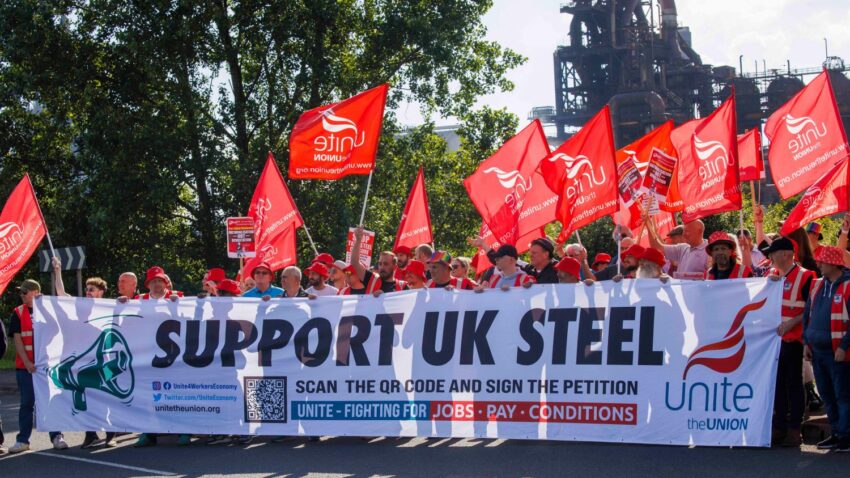Labour politicians are calling on Tata Steel to refrain from making irreversible decisions before next week’s general election.
The Indian company recently announced it plans to expedite the shutdown of blast furnaces at its Port Talbot plant due to impending industrial action.
As Britain’s largest steel producer, Tata Steel has informed workers at the South Wales site of potential early cessation of operations, prompted by a looming strike by Unite union members.
The company had originally planned to close one furnace by the end of June and the second by September, transitioning to a more environmentally friendly electric arc furnace as part of a government-backed initiative.
Unite has initiated strike action to protest these plans, which they claim will lead to the loss of thousands of jobs.
In response to the planned strike on July 8, Tata has stated it is “left with no alternative but to take preparatory steps to cease operations on both blast furnaces and safely isolate them no later than July 7.”
This announcement has drawn condemnation from Unite and calls from Labour politicians for Tata to delay their plans. Stephen Kinnock, Labour’s parliamentary candidate for Aberafan Maesteg, and David Rees, Labour’s Senedd member for Aberavon, issued a joint statement stressing the importance of prioritising the safety and security of steelworkers and the plant.
They added: “Tata wouldn’t be facing strike action if it hadn’t chosen to proceed with the closures of the blast furnaces so hastily. We have consistently urged Tata to avoid any irreversible actions until after the general election, given the potential for discussions with a Labour government regarding a £2.5 billion steel renewal fund.”
Labour has pledged to secure a better deal for the steel industry if they come to power and has previously urged Tata to consider a compromise plan, supported by Community and GMB unions, to maintain one blast furnace until the electric arc furnace is operational. This proposal, however, would cost taxpayers more than the £500 million offered by the current Conservative government and has been rejected by Tata, which plans to invest £750 million to decarbonise its UK operations under the existing agreement with ministers.
Tata, which has taken legal action against Unite’s strike ballot, emphasised that pausing or stopping heavy operations, including both blast furnaces, is not a decision taken lightly due to its significant cost and disruption across the supply chain. The company insists that the safety of people on or around their sites remains their top priority.
Unite’s general secretary, Sharon Graham, commented: “Tata’s threat to shut or pause its blast furnaces three months earlier than planned is the latest in a series of intimidations that will not deter us. We urge the real decision-makers in Mumbai to intervene in this dispute.”


